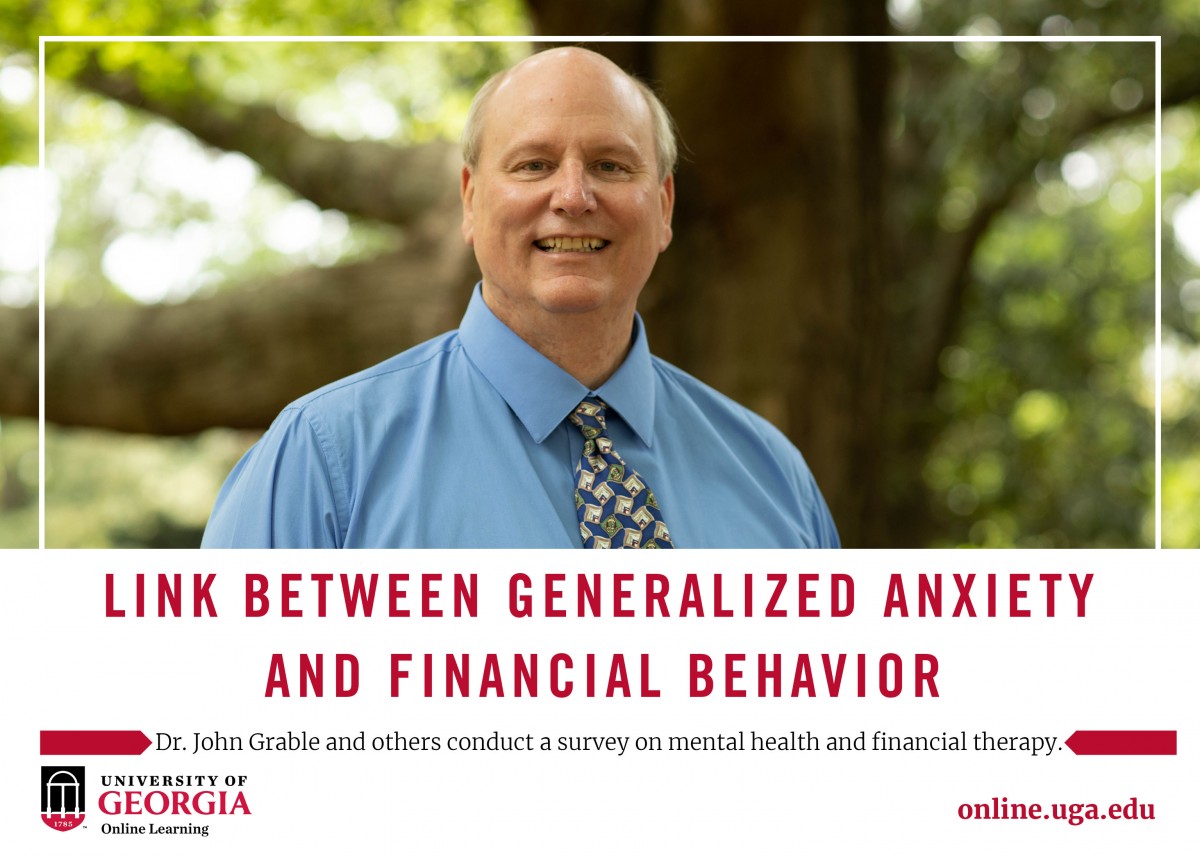UGA faculty, John Grable, Helps Connect Anxiety to Financial Behavior
UGA faculty, John Grable, Helps Connect Anxiety to Financial Behavior
Online M.S. in Financial Planning professor, John Grable, and his colleagues designed a survey to reveal a possible connection between two psychosocial concepts—financial knowledge and generalized anxiety. The study dives into how the two concepts are related to risky financial management.

The study explains that when mental health and financial issues intersect, it’s important to evaluate and restructure financial therapy. The outcome of the study can be used by both financial and mental health therapists when developing behavior focused treatments.
110 clients who were seeking financial counseling or planning support participated. They indicated whether they seldom or always engaged in behaviors such as paying off credit card balances in full each month to avoid interest charges, maxing out credit card limits, purchasing and maintaining adequate health and property insurance. Their financial management behavior was then scored between 5 – 25 with 25 being the least risky financial management behavior.
The majority in the study were white females, one third were married and two-out-of-three said they made equal or more than $30,000 annually. On average, participants experienced a moderate degree of anxiety.
The study looked into the usual methods of financial therapy—focusing on debt and portfolio choices rather than mental health associations. As a mental health therapist wouldn’t usually ask a client about their financial decisions. The outcome of the study suggested both financial therapists should consider their clients mental health issues when assessing their behavior and vice versa for the mental health therapist.
However, the results displayed that those who experienced higher levels of generalized anxiety also engaged in higher risky financial behavior. It also suggests financial planners become educated on assessing psychological factors and how to efficiently communicate in order to assess these financial behaviors. The study also recommends financial planners develop how to refer clients to mental health services.
The solution to financial behavior and generalized anxiety in the study showed that by increasing financial knowledge, you may concurrently decrease anxiety. The study said currently there is little to no training on financial behavior and the field for mental health therapists. Further, the study suggests that only addressing a client’s mental health without assessing their financial behavior could result in “suboptimal outcomes.”
Ultimately, the research urges both mental health and financial therapists to connect both fields and concepts when assessing clients for the best results. Together, both fields of therapy can work to best assess the clients goals regarding risky financial behavior and consequent anxiety.
